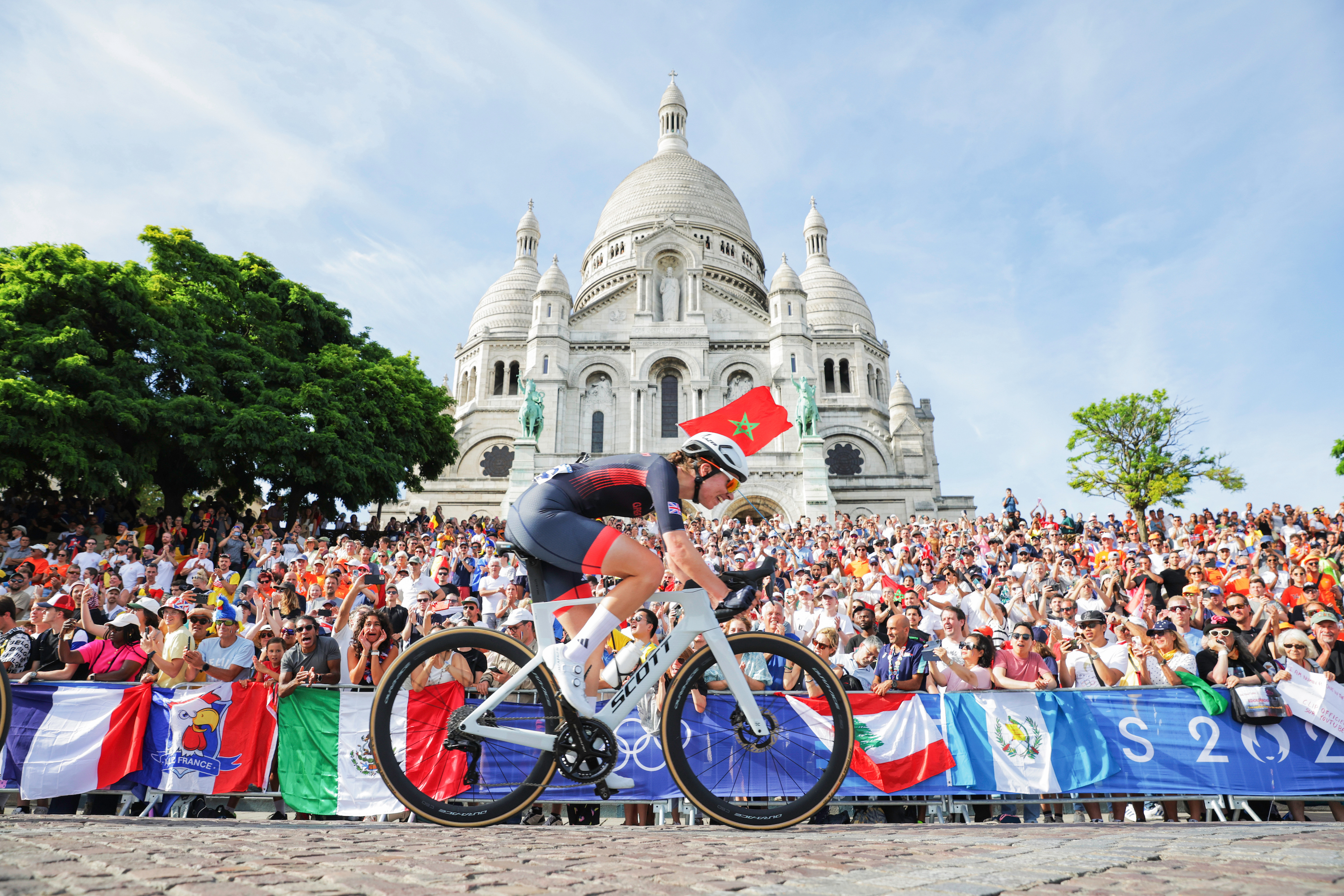
I was away on holiday over the weekend, spending some time with friends in West Wales, so I did something reasonably unusual - I watched cycling with people who don’t like cycling. Let me rephrase that, I subjected some of my friends to the Paris Olympics men’s road race on Saturday, and another friend to the women’s road race on Sunday. How often do you actually do this? Your housemate or partner might walk in and quickly out of the living room while you watch a stage of the Tour de France, but it feels rare to watch an extended period of time with someone who has no real interest in the sport.
It’s moments like this that make you realise how insular and niche bike racing is. Pretty much everyone understands the basic rules of football, or can work out what’s going on in the 100m sprint, or even the mountain biking. But the road race is different, seemingly more complex, and opens up a whole load of new questions.
Firstly, there is how long it takes. This seems to confound a lot of people, and is one of the hardest things to sell about the sport of road cycling - who has the time to watch all of the action, or who will screen it all? When we left our Airbnb at 11am on Saturday, the men’s road race had just begun. Four hours later, and having gone on a five mile walk, a wild swim, and sat down for a pub lunch, and the race was still going. Remco Evenepoel was riding for over six hours on Saturday, which is four football matches long. You’re asking for a lot of attention.
Obviously, not all races are as long as the men’s Olympic road race at 260km, it’s an extreme example, but this does seem bizarrely long to anyone outside of the bike racing bubble. Connected to this, my friends didn’t understand why the women’s race was 100km shorter, which is not something necessarily easy to explain away.
I think we kid ourselves that cycling is accessible, but as soon as a word like peloton or breakaway is uttered, the whole thing becomes confusing. Add in the idea of a team sport where an individual wins, and the fact that real world factors impact racing, and it quickly becomes a beguiling, fascinating thing, but also a quite difficult concept to a lay person.
A one-day race is the easiest cycling event to understand - the person at the front wins, right? However, it opens other questions, the biggest of which is ‘why doesn’t someone just ride off?’
This is the one of the most fundamental questions in cycling, and is what sets it apart from other sports. It’s not that simple, but sometimes it is - it is essentially what Evenepoel and Kristen Faulkner did at the weekend, and it is what Tadej Pogačar has been doing all year. Perhaps cycling is simple, after all, but we could all do a better job of explaining it.
Stage races, meanwhile, are a completely different level of perplexing - stages are not necessarily an indicator of the overall winner. This doesn’t seem too difficult to understand, but the fact there can be multiple winners at the same time is somewhat unique in top level sport.
I’m not sure any of my friends are going to go away and purchase a Eurosport subscription straight away, but it was interesting to get out of the bubble and to realise how niche of a sport cycling actually is. Perhaps, it’s something I’ll aim to do more often than once every four years.
This piece is part of The Leadout, the offering of newsletters from Cycling Weekly and Cyclingnews. To get this in your inbox, subscribe here.
If you want to get in touch with Adam, email adam.becket@futurenet.com.







